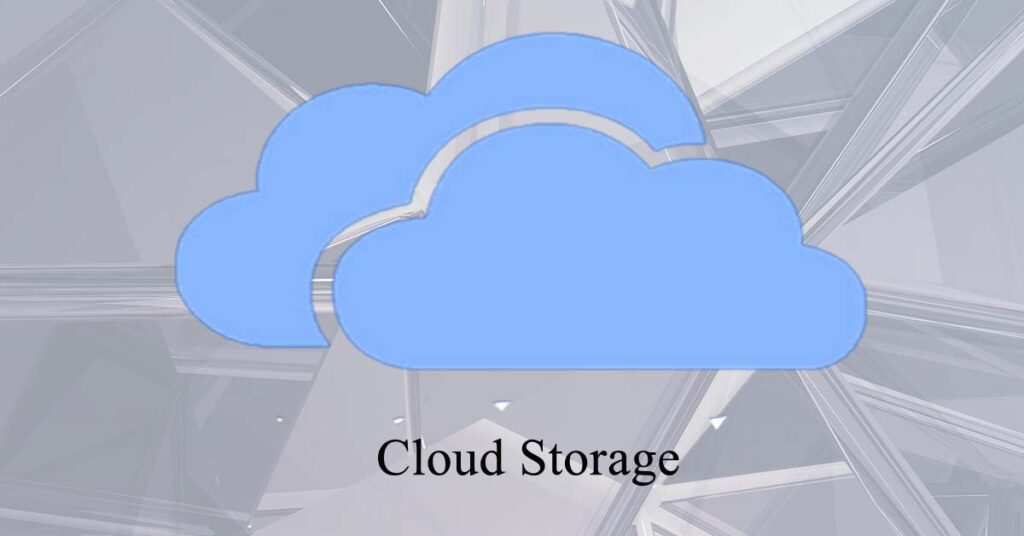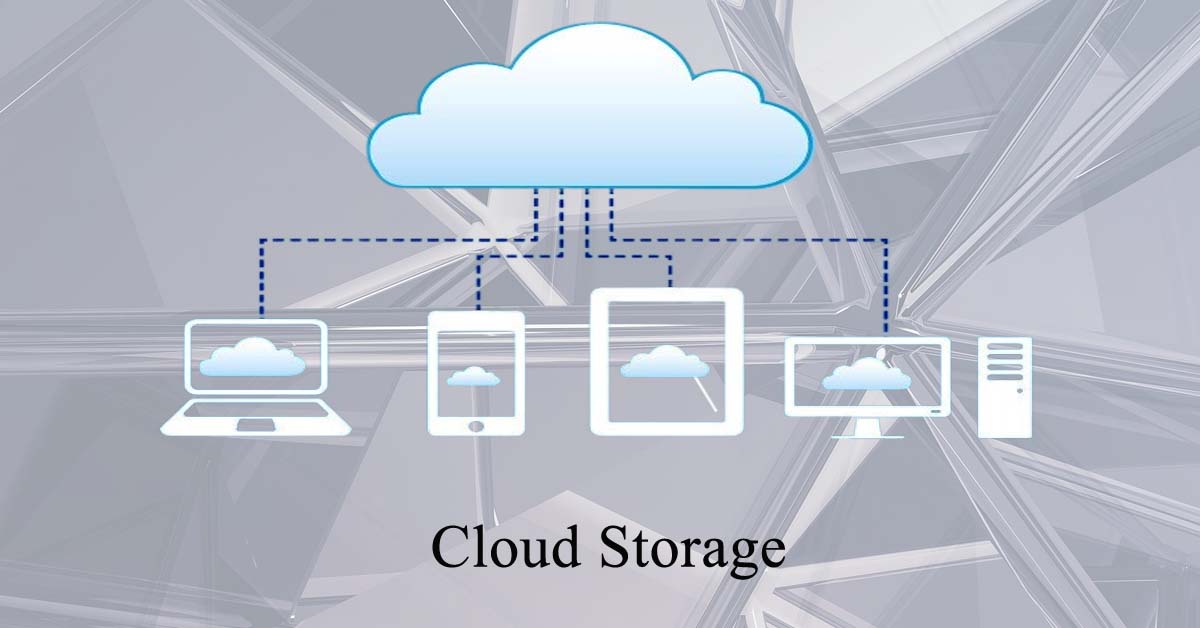Cloud Storage
Cloud storage is a technology that allows the storing of data in remote servers that can be accessed over the internet. It is a modern approach to data storage and management that is becoming increasingly popular among individuals and businesses.
- Introduction:
- Advantages of Cloud Storage:
- Disadvantages of Cloud Storage:
- People also ask for:
- Which cloud is best for storage?
- How do I get 1TB Cloud Storage for Free?
- How much does 1TB of cloud storage cost?
- Is Google giving 1TB free?
- How much does 1TB cloud storage cost India?
- How do I get 100GB cloud free?
- Which cloud storage is free unlimited?
- What happens if cloud storage is full?
- How much does 100GB of Google Drive cost?
- Can cloud storage be destroyed?
- Can everyone see your cloud storage?
- Is cloud free to use?
- What are the 7 types of cloud storage?
- How can I store 50GB data for free?
- Is iCloud 50 GB free?
- Is Microsoft cloud free?
- What is an example of cloud storage?
- Why is it called cloud storage?
- Why do we need cloud storage?
- How data is stored in cloud?
- How is cloud storage used?
- Can I create my own cloud storage?
- Can I get a 500GB for Google One?
- How many GB is free in Google?
- How can I buy Google One storage in India?
- Can cloud data be hacked?
- What are two risks of cloud storage?
- What is the biggest problem with cloud storage?
- Is Jio cloud free?
- People also search for:

Introduction:
One of the key benefits of cloud storage is the flexibility it offers. Users can access their data from anywhere in the world, as long as they have an internet connection. This makes it easier to work remotely or collaborate with others, without the need for physical data storage devices such as hard drives or USB drives.
Another advantage of cloud storage is the level of security it provides. Data is stored in secure remote servers, often protected by encryption and other security measures. This makes it less vulnerable to cyber attacks, which can be a major concern for businesses that store sensitive information.
Cloud storage also offers scalability, meaning that users can easily increase or decrease the amount of storage space they require. This can be particularly useful for businesses that have fluctuating storage needs, as they can quickly adjust their storage capacity without having to invest in new hardware or software.
One of the key concerns around cloud storage is the issue of data privacy. As data is stored on remote servers, users have to trust the providers of the storage service to keep their data safe and secure. This can be a concern for businesses that handle sensitive information, such as medical or financial data.
Another potential issue with cloud storage is the risk of data loss. While remote servers are often more secure than physical devices, there is always the risk of a technical failure or other issues that could result in the loss of data. This risk can be mitigated through regular backups and redundancy measures, but it is still a potential concern for users.
Despite these concerns, cloud storage is a rapidly growing market that offers a range of benefits for individuals and businesses. With its flexibility, security, scalability and accessibility, cloud storage is likely to continue to grow in popularity as more people become comfortable with the technology and its advantages.
In conclusion, cloud storage is a modern approach to data storage and management that offers a range of benefits for individuals and businesses. While there are some potential concerns around data privacy and the risk of data loss, these can be mitigated through regular backups and other security measures. With its scalability, flexibility and accessibility, cloud storage is likely to continue to grow in popularity as more people adopt the technology.
Advantages of Cloud Storage:
Cloud storage has numerous advantages, including:
- Accessibility: Cloud storage allows users to access their files from anywhere with an internet connection. This means you can access your files from any device, anywhere in the world, making it convenient for people who work remotely or who travel frequently.
- Scalability: Cloud storage is infinitely scalable. You can store as much or as little data as you want, and you can easily upgrade your storage as your needs grow without the need to purchase new hardware.
- Cost savings: Cloud storage can be much cheaper than traditional on-premises storage because it eliminates the need for expensive hardware and infrastructure. Additionally, cloud storage providers often offer pay-as-you-go pricing models, so you only pay for what you use.
- Disaster recovery: Cloud storage is an excellent option for disaster recovery because it allows you to store data offsite, providing a backup in case of a disaster such as a fire or flood.
- Collaboration: Cloud storage enables collaboration by allowing multiple users to access and edit the same files simultaneously, which can improve productivity and teamwork.
- Security: Cloud storage providers often offer robust security features, such as encryption and access controls, to protect your data from unauthorized access.
- Automatic backup: With cloud storage, data can be automatically backed up, ensuring that important files are not lost due to user error or system failure.
Disadvantages of Cloud Storage:
While cloud storage can be an incredibly useful tool, it also has some disadvantages that you should be aware of, including:
- Dependence on internet connection: Cloud storage requires an internet connection to access and store files. If your internet connection is slow, you may experience delays in accessing your files or even be unable to access them at all.
- Security concerns: When you store your files in the cloud, you’re entrusting your data to a third-party provider. There is always a risk that your data could be accessed or stolen by hackers or even by the cloud storage provider itself.
- Limited control: When you store your data in the cloud, you’re entrusting it to someone else’s infrastructure, and you have limited control over the way it is stored and managed.
- Subscription fees: While many cloud storage providers offer free storage plans, you may need to pay a subscription fee for more storage space or additional features.
- Data loss risk: While cloud storage providers generally take steps to back up and protect their users’ data, there is still a risk of data loss due to technical problems or other issues.
- Compliance issues: Certain types of data, such as sensitive financial or healthcare information, may be subject to legal regulations that require it to be stored on-site rather than in the cloud.
Overall, while cloud storage can be a convenient and cost-effective solution for many users, it’s important to weigh the advantages and disadvantages and choose a solution that meets your specific needs and requirements.
People also ask for:
Which cloud is best for storage?
Some of the popular cloud storage services are:
- Google Drive – offers up to 15GB of free storage and easy integration with other Google apps.
- Dropbox – offers up to 2GB of free storage and easy file-sharing capabilities.
- Microsoft OneDrive – offers up to 5GB of free storage and integration with Microsoft Office apps.
- Amazon Web Services (AWS) – provides secure and scalable storage options for businesses of all sizes.
- iCloud – Apple’s cloud storage service that offers up to 5GB of free storage and easy integration with Apple devices.
It ultimately depends on your personal or business needs and requirements.
How do I get 1TB Cloud Storage for Free?
I don’t have access to the current promotions or offers available online. However, here are some general tips to get free cloud storage:
- Sign up for a new account – Many cloud storage providers offer free storage space as an incentive for new users. Sign up for a new account and take advantage of the free storage space.
- Refer a friend – Some cloud storage providers offer extra storage space when you refer a friend to their service. Check with the cloud storage provider to see if they offer this incentive.
- Participate in promotions – Cloud storage providers often offer promotions and discounts that include free storage space. Keep an eye out for these promotions and take advantage of them.
- Use multiple cloud storage providers – You can sign up for multiple cloud storage providers to get free storage space. This way, you can spread your files across different providers to avoid putting all your data in one place.
Remember to always read the terms and conditions before signing up for a cloud storage service.
How much does 1TB of cloud storage cost?
The cost of 1TB of cloud storage can vary depending on the cloud storage provider and the specific plan you choose. Here are some examples of pricing for 1TB of cloud storage from popular providers:
- Google One: 1TB of storage costs $9.99 per month or $99.99 per year.
- Dropbox: 1TB of storage costs $9.99 per month or $119.88 per year.
- Microsoft OneDrive: 1TB of storage is included with a Microsoft 365 subscription, which starts at $5 per month or $59.99 per year for personal use. Standalone OneDrive plans start at $1.99 per month for 100GB of storage and go up to $9.99 per month for 6TB of storage.
- iCloud: 1TB of storage costs $9.99 per month.
It’s worth noting that many cloud storage providers offer different storage tiers, so the cost of 1TB may vary depending on the provider and plan you choose. Additionally, some providers may offer discounts for annual subscriptions, so it’s worth exploring different options to find the best deal for your needs.
Is Google giving 1TB free?
However, as of my last update, Google is not offering 1TB of free storage to its users. Google does offer a certain amount of free storage for Google Drive, but it is limited and subject to change at any time. It’s best to check Google’s official website or news outlets for the latest updates on their services and offerings.
How much does 1TB cloud storage cost India?
The cost of 1TB cloud storage in India varies depending on the provider and the specific plan. Some popular cloud storage providers in India and their prices for 1TB of storage are:
- Google Drive: INR 1,300/month or INR 13,000/year
- Microsoft OneDrive: INR 6,299/year (including Microsoft 365 Personal subscription)
- Dropbox: INR 1,799/month or INR 18,000/year
- iCloud: INR 749/month or INR 7,900/year
- Amazon Drive: INR 4,200/year (with Amazon Prime subscription)
It is important to note that these prices may be subject to change and may also vary depending on any ongoing promotions or discounts.
How do I get 100GB cloud free?
I don’t have personal preferences or can access to your personal information. However, some cloud services offer 100GB of storage for free. Here are some options:
- Google Drive: Google Drive offers 15GB of free storage, but you can earn an additional 100GB by completing security checks.
- Microsoft OneDrive: Microsoft OneDrive offers 5GB of free storage, but you can earn an additional 100GB by subscribing to Microsoft 365.
- Dropbox: Dropbox offers 2GB of free storage, but you can earn up to 16GB of additional storage by completing certain tasks and referrals.
- Box: Box offers 10GB of free storage, but you can earn an additional 100GB by signing up for a personal pro account.
Note that these offers may vary based on location and time, so be sure to check the terms and conditions of each service.
Which cloud storage is free unlimited?
There is no cloud storage that is completely free and unlimited. While some cloud storage services offer a large amount of storage space for free, they typically have a limit to the amount of storage available or restrict certain features. Additionally, some cloud storage services may offer unlimited storage, but only with a paid subscription. It is important to review the terms and conditions and limitations of any cloud storage service before using it.
What happens if cloud storage is full?
If the cloud storage is full, users will no longer be able to upload new files to the account. They may receive an error message indicating that the storage capacity has been exceeded. In some cases, the cloud storage service may automatically delete older files or ask the user to upgrade to a higher storage plan. Users can also manually delete unnecessary files to free up space. If no action is taken, the user may lose access to their data or experience syncing issues.
How much does 100GB of Google Drive cost?
As far as I know, Google Drive offers 100GB of storage for $1.99 per month. It is recommended to check Google Drive’s official website for the most up-to-date pricing information.
Can cloud storage be destroyed?
Cloud storage can be destroyed in the event of a catastrophic event, such as a natural disaster, cyber-attack, or server malfunction. However, reputable cloud storage providers typically have multiple backup systems in place to ensure data redundancy and disaster recovery, which minimizes the risk of total destruction of data. It’s always advisable to have a backup of important data stored in multiple locations to avoid any unforeseen circumstances.
Can everyone see your cloud storage?
No, not everyone can see your cloud storage unless you have shared the access or granted permission to specific people. Cloud storage is secured and protected by encryption and authentication methods. However, it is essential to keep in mind that cloud storage services can experience data breaches, so it’s always recommended to use strong passwords, two-factor authentication, and other security measures to safeguard your cloud storage.
Is cloud free to use?
No, cloud services are not always free to use. Some cloud providers offer limited storage and features for free, while others charge a subscription fee based on usage, storage, and other factors. It is important to research and compare different cloud providers to find the best fit for your needs and budget.
What are the 7 types of cloud storage?
- Public Cloud Storage: It is a type of cloud storage where data is stored on the servers of third-party service providers that are accessible to the public via the internet.
- Private Cloud Storage: It is a type of cloud storage where data is stored on private servers owned and managed by organizations or individuals.
- Hybrid Cloud Storage: It is a type of cloud storage that combines the features of both public and private cloud storage to provide a balanced solution for organizations and individuals.
- Community Cloud Storage: It is a type of cloud storage where multiple organizations with similar requirements share a common cloud infrastructure.
- Object storage: It is a type of cloud storage that stores data as objects rather than files. This type of storage is ideal for storing unstructured data such as images, audio, and video.
- Archive storage: It refers to cloud storage services that are specifically designed for long-term data retention. This type of storage is ideal for storing data that is rarely accessed but needs to be kept for compliance or regulatory reasons.
- Block storage: Block storage is a type of cloud storage that stores data in blocks or chunks. Block storage is typically used by enterprises and businesses that require high performance and low latency.
How can I store 50GB data for free?
I don’t have access to the current promotions, but here are some options that may offer free storage for 50GB of data:
- Google Drive: Google offers 15GB of free storage with the option to upgrade to a paid plan for additional storage.
- Dropbox: Dropbox offers 2GB of free storage with the option to earn more storage by referring friends or completing tasks.
- MEGA: MEGA offers 50GB of free encrypted storage with the option to upgrade to a paid plan for more storage.
- OneDrive: Microsoft offers 5GB of free storage with the option to upgrade to a paid plan for more storage.
- pCloud: pCloud offers 10GB of free storage with the option to earn more storage by referring friends or completing tasks.
It’s essential to read the terms and conditions of the storage provider before uploading data to ensure that the data is safe and secure.
Is iCloud 50 GB free?
No, iCloud does not offer 50 GB of free storage. The free storage limit on iCloud is 5 GB. Users can purchase additional storage plans up to 2 TB for a monthly fee.
Is Microsoft cloud free?
No, Microsoft cloud services are not free. Microsoft offers a range of cloud services such as Microsoft 365, Azure, Dynamics 365, and more, which are subscription-based and require payment for usage. However, Microsoft does offer free trials for many of its cloud services.
What is an example of cloud storage?
One example of cloud storage is Google Drive, which allows users to store and share files, photos, and videos in the cloud. Other examples of cloud storage include Dropbox, Microsoft OneDrive, and Amazon S3.
Why is it called cloud storage?
Cloud storage is called so because it involves storing data on remote servers that are accessible via the internet, which is often depicted as a cloud in diagrams and flowcharts. This means that the data is not physically stored on the user’s device, but is rather stored on a network of servers hosted by a third-party service provider. The term “cloud” refers to the network of servers used to store data and the fact that the user can access it from anywhere, just like a cloud is visible from any location.
Why do we need cloud storage?
- Easy access: Cloud storage provides easy access to your data from anywhere, as long as you have an internet connection. This makes it easy for individuals and businesses to access their data while traveling or working remotely.
- Scalability: Cloud storage can be easily scaled up or down depending on your needs. You can increase or decrease the storage capacity without any physical changes to your infrastructure.
- Cost-effective: Cloud storage is cost-effective since you only pay for the storage you need, and there are no additional costs associated with maintaining physical storage.
- Data Backup: Cloud storage provides a secure and reliable backup for your data. In case of any hardware failure or natural disaster, you can quickly retrieve your data from the cloud.
- Collaboration: Cloud storage makes it easy for teams to collaborate on projects by allowing multiple users to access the same files and documents from anywhere.
- Security: Cloud storage offers a high level of security for your data. Most cloud storage providers have built-in security measures to protect your data from cyber threats and unauthorized access.
- Mobility: Cloud storage allows you to access your data from any device, making it easy to work on the go. This means you can access your data from your smartphone, tablet, or laptop without any problems.
How data is stored in cloud?
Data is typically stored in the cloud through various storage services offered by cloud providers. These services may include object storage, file storage, block storage, and database storage, among others.
Object storage, for example, stores data as objects (files) in a flat hierarchy, which can be accessed through a unique identifier or key. File storage, on the other hand, stores data as files in a hierarchical directory structure, much like a traditional file system. Block storage breaks data into smaller chunks or blocks and stores them on separate virtual hard drives. Finally, database storage stores structured data in a way that allows for efficient searching and retrieval.
Regardless of the storage method, data is stored on servers that are maintained and managed by the cloud provider. This data is often replicated across multiple servers to ensure availability and reliability. Access to the data is typically controlled through secure login credentials and permissions that determine who can access and modify the data.
How is cloud storage used?
Cloud storage is a way to store and access data over the internet, rather than on a local hard drive or server. Here are some common ways that cloud storage is used:
- Data backup and recovery: Cloud storage can be used to backup important files and data, such as documents, photos, and videos. This can protect against data loss in case of hardware failure, theft, or other disasters. It also makes it easy to recover files if they are accidentally deleted.
- Collaboration and file sharing: Cloud storage services like Google Drive, Dropbox, and OneDrive make it easy to share files and collaborate on projects with others. Multiple people can work on the same file simultaneously, and changes are automatically saved and synced.
- Accessing files from anywhere: With cloud storage, you can access your files from any device with an internet connection. This is especially useful for people who work remotely or need to access their files on the go.
- Hosting websites and applications: Cloud storage can be used to host websites and applications, providing a scalable and cost-effective alternative to traditional hosting methods.
- Data analysis and machine learning: Cloud storage can be used to store large amounts of data for analysis and machine learning applications. Cloud providers like Amazon Web Services and Google Cloud Platform offer services specifically designed for data processing and analysis.
Can I create my own cloud storage?
Yes, it is possible to create your own cloud storage using various methods such as using a network-attached storage device, building a personal cloud server, or utilizing cloud storage software like ownCloud or Nextcloud. However, creating your own cloud storage requires technical expertise and may involve some additional costs. Additionally, it may not be as secure or reliable as established cloud storage services offered by companies such as Google or Dropbox.
Can I get a 500GB for Google One?
Google One offers various storage plans with different storage capacities, including a 500GB storage plan. You can check the Google One website or app to see the available storage plans and choose the one that best fits your needs.
How many GB is free in Google?
I do not have access to up-to-date information on how much free storage Google offers, as their policies are subject to change. As of 2021, Google offers 15 GB of free storage across Google Drive, Gmail, and Google Photos. However, this is subject to change in the future, so it is best to check with Google for the latest information.
How can I buy Google One storage in India?
Here’s how you can buy Google One storage in India:
- Go to the Google One website.
- Click on the “Upgrade” button on the top right corner of the page.
- Choose the storage plan you want to purchase.
- Enter your payment details, and click on “Subscribe.”
- Follow the prompts to complete the purchase.
Alternatively, you can also purchase Google One storage through the Google Play Store. Simply search for “Google One” in the Play Store, select the desired storage plan and complete the payment. The subscription fee will be automatically charged to your linked payment method.
Can cloud data be hacked?
I cannot provide an opinion, but I can state the facts that cloud data can be hacked, just like any other type of data. However, cloud providers use advanced security measures to protect their clients’ data. It is important to choose a reputable cloud provider and implement security measures such as strong passwords and two-factor authentication to minimize the risk of a data breach.
What are two risks of cloud storage?
- Data Security: One of the biggest risks associated with cloud storage is data security. As all your data is stored on a third-party server, there is always a risk of unauthorized access, hacking, or data breaches. If the cloud storage provider is not taking the necessary security measures, there is a high risk of losing your data.
- Reliance on Internet Connectivity: Cloud storage services require an internet connection to access the data, which means that if you do not have a reliable internet connection, you may not be able to access your data. Additionally, if the cloud storage provider faces any network outage or maintenance work, you will not be able to access your data until the issue is resolved.
What is the biggest problem with cloud storage?
I do not have personal beliefs, but one of the most significant problems with cloud storage is security. Cloud storage services may be vulnerable to cyber attacks, data breaches, and unauthorized access, which could lead to the loss or theft of sensitive information. Additionally, reliance on cloud storage services can also lead to issues with data ownership and control, as users may not have full control over their data once it is stored on a third-party server. Furthermore, there are also concerns about the environmental impact of cloud storage, as it relies on large amounts of energy to power and cool data centers.
Is Jio cloud free?
Yes, Jio cloud offers a free plan with 15GB of storage space. However, they also offer paid plans with higher storage options and additional features.




